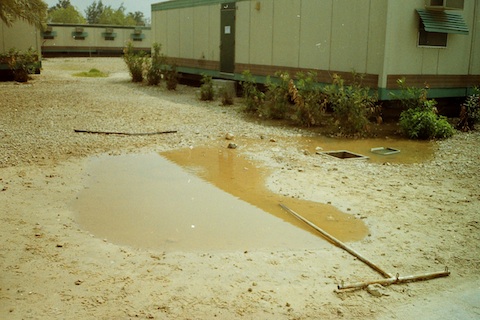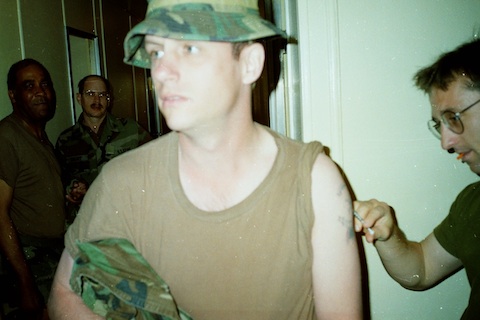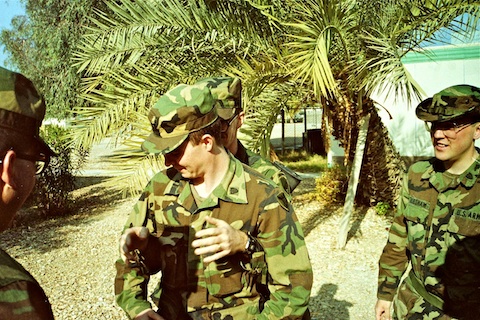Mission Assigned: Kuwait City
Jubayl, Saudi Arabia—There were two reasons for the Iraqis’ panic: first, the colossal success of American and British forces in driving across southern Iraq; and second, President Bush’s refusal to accept a Soviet sponsored cease fire of twenty-one days. The Iraqis knew painfuuy well the consequences of not leaving Kuwait before Bush’s January 15 deadline. Once again, the message was loud and clear — Get out! This time however disaster was equally severe as allied air power and armored units annihilated the Iraqis’ massed convoys. In the weeks that followed, residents of Kuwait City expressed their deep gratitude to members of the 432nd for Bush’s decision to prevent a cease fire. Visions of urban warfare made unit members equally grateful to the president.

The enormous benefit of avoiding a cease fire was explained in one other briefing presented to the 432nd in Jubayl. A speaker representing the US State Department provided a time frame of events occuring in regions following military liberation. Surprisingly, he explained, tnere would be relatively fewer civilian deaths in the first phase after liberation because people would be “too busy” surviving to die. Furthermore, if the enemy were forced to withdraw under fire, there would be fewer deaths yet, since the enemy would have less of a chance to commit their usual sabotage and atrocities.
The group had been hoping to enter Kuwait City under peaceful conditions, but now realized civilians might be better off if the enemy were forced to leave quickly, under fire. As it turned out however, President Bush did assure that the Iraqis would leave quickly, thus reducing their damage of the country’s economic infrastructure as well as curtailing their murder of civilians.

Members were further surprised to learn during the briefing that deaths would increase in the later stages of friendly occupation as wounded civilians began learning about lost family members. Thus, despondency more than disease would take lives. Even disease, surprisinqly, was regarded as a negligible threat in Kuwait City due to the thoroughness of govemment vaccination programs. The troops also learned however they might increase health problems by providing milk to civilians, causing both diarrhea and transmission of disease through insufficiently cleaned baby bottles. The briefing that Saturday had been an eye opener, enhanced on the following day by a new reality: G-Day, the start of the ground war.

By the start of church services on Sunday, February 24, everyone had learned that G-Day had begun around 0400. During Protestant services in fact, people thought they could hear the distant rumblings of combat. One rumble, louder than the rest, halted the preacher during his sermon. After a brief pause, the former Virginia farm boy explained, “If you hear it, they were aiming for someone else … If you don’t, they were aiming for you.” Sermon continued.
| Page 13 | Page 14 | Page 15 |
